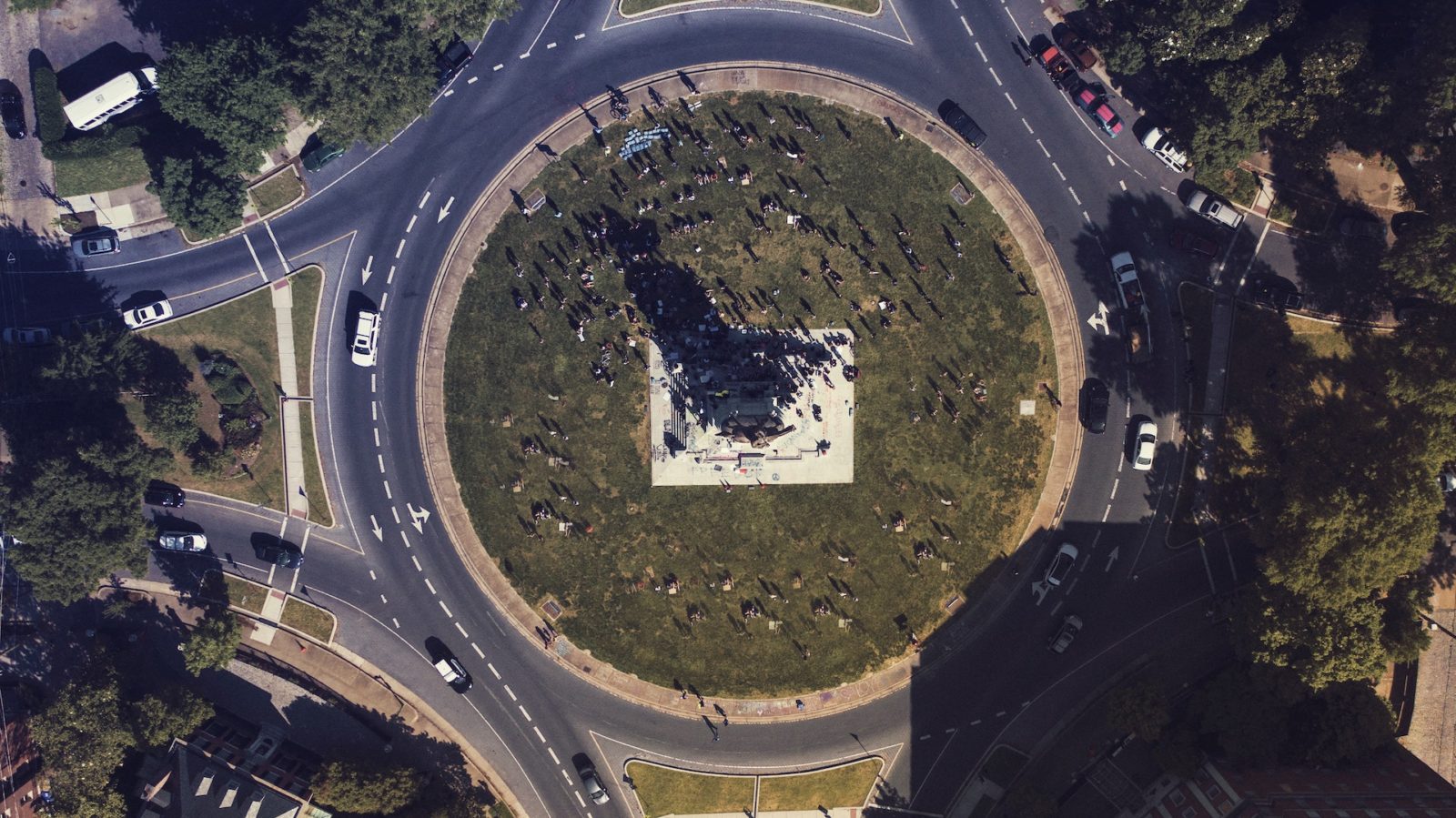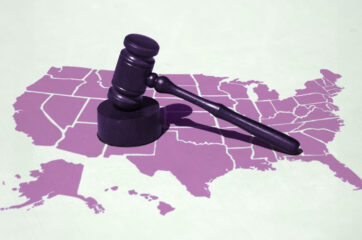Since Democrats gained majorities in both houses of the Virginia legislature in the midterm election, the Virginia General Assembly has been making vast strides in the development of climate legislation. With the significant passage of the Virginia Clean Economy Act and announcement to join the Regional Greenhouse Gas Initiative (RGGI) in 2021, Virginia is the first southern state to pave the path towards adopting strong climate policy in the region. Governor Ralph Northam has also begun implementing policy to prepare for the impacts of climate change.
The United States Environmental Protection Agency (EPA) released a report back in 2016 on the effects climate change will have specifically on Virginia. The report discusses sea level rise, beach erosion, and saltwater intrusion as main threats to the coast. Notably, it details the threat of more severe and frequent tropical storms, hurricanes, increased rainfall, and flooding to the infrastructure of Virginia residences and communities. Climate scientists expect that severe weather and storms such as hurricanes will become more frequent and more disastrous in the coming years as sea levels rise and global temperatures increase. With hurricane season already breaking records this fall with 28 tropical storms and twelve hurricanes so far, climate experts say resources for natural disasters are severely scarce due to COVID-19.
The EPA report predicts that flood insurance rates will spike as major damage to homes become more frequent, and people will be stranded as roads become submerged under water. This puts those living with low-incomes, and marginalized residents at a much higher risk for personal injury and/or death, damage to assets, and financial loss or bankruptcy.
What are the consequences of severe weather?
The consequences of climate change are regressive. With low-income families being less able to adapt to more frequent and recurrent weather incidents like flooding and tropical storms, they are at a higher risk of asset loss, personal injury, and permanent displacement in high flood risk regions.
Today, Black communities in Virginia are at greater risks to hurricanes due to historically racist policies and zoning practices. The geographic distribution throughout the state follows historical patterns of slavery, with areas of Virginia slaveholding continuing to have the largest number of Black populations (Claibourn). In 1912, the Virginia General Assembly passed legislation allowing municipalities to adopt residential segregation ordinances. While only instated for five years before deemed unconstitutional, these policies created lasting social and economic impacts on Black Virginians. Black Virginians are more likely than white Virginians to be poor, and in 2010, the median household incomes of Black people made 38% less than their white counterparts (Claibourn). With economic status playing a key role in the ability to adapt to severe weather and natural disasters, Black communities are at greater risk of injury, losses to assets, and displacement when it comes to climate impacts.
What actions has Virginia taken?
1. Environmental Justice Report
This July, the Virginia Council on Environmental Justice released its 2020 annual report. The 81-page document stated that natural disasters are a “prime consideration” for environmental justice. The Governor’s office addressed the importance for state officials to develop plans in advance for crisis situations such as hurricanes in accordance with all communities, including low-income and minority groups, which are especially vulnerable to the impacts of natural disasters. The report discusses preemptive action that should be taken in order to minimize the deaths, injury, and economic loss to these at-risk communities following a natural disaster, citing data from New Orleans, when a disproportionate number of Black Americans lost their lives and homes as a result of Hurricane Katrina in 2005.
This past March, Governor Northam passed a bill making this once temporary council a permanent advisory body in the Virginia executive branch. In a statement, Northam stated that establishing the Virginia Council on Environmental Justice would “ensure communities are directly involved in the decisions that affect them most, and will help prevent vulnerable Virginians from being disproportionately impacted by pollution, climate change and environmental hazards.”
The Environmental Report outlines a recommendation to develop communication between communities of color and state officials, notably citing increases in natural disaster severity and scale as a direct result of climate change. Within the recommendation, these efforts include establishing infrastructure standards in cities on the coastline, which is already taking place in the historic city of Norfolk.
The Environmental Justice report also addressed the ineffectiveness of the federal government in handling the current pandemic crisis, stating that COVID-19 has “exposed weaknesses in the federal government’s willingness and or ability to effectively respond to crisis and to rebuild communities equitably.” The report concludes that due to the federal government’s inefficiency in these unprecedented times, the Virginia Commonwealth has a duty to step up and go beyond its usual discretion to protect and prioritize vulnerable communities, rather than conventionally supporting financial sectors and corporations.
In preparation for hurricanes and natural disasters to come, the Virginia Council on Environmental Justice specified using its discretion under Executive Order Twenty-Four (EO-24), which was issued back in 2018 to improve Virginia’s response and recovery towards flooding, sea level rise, and other natural hazards.
Additionally, the report referenced suggestions made by the State, Local, and Tribal Leaders Task Force on Climate Preparedness and Resilience, established by President Obama’s Executive Order 136531 in 2013. This task force was created to research and devise plans to prepare for the impacts of climate change on the United States, and published a report with recommendations to the President back in 2014. The Environmental Justice 2020 report included suggestions from a more recent document written by the task force in 2018 on Federal Level Policy Recommendations for Disaster Recovery. Among these suggestions was a ban on development in floodplain regions and adding regulations on new construction which could include halting insurance given to any new buildings.
The task force specified that in order to reduce harmful impacts to vulnerable communities in Virginia, the state government must take legal action to ensure that continuous assistance is offered in order to recover from future climate-related disasters to reduce inequity among minorities, especially given the disproportionate health effects they already face with COVID-19 and pollution. This solution for disaster relief and recovery is unconventional, as it focuses on a “bottom-up” approach, stating that serving the least privileged will create greater stability in the commonwealth’s economy as a whole.
2. Checks implemented to keep climate part of the discussion
In March of this year, the Virginia General Assembly also passed House Bill 47 with sweeping support, which put the Joint Commision on Technology and Science (JCTOS) in charge of studying the economic consequences of weather and climate-related events. The fifth and final clause of the bill gave the JCTOS the responsibility “to effect such alternative actions and improve our knowledge of their effectiveness and cost” in relation to hurricanes, flooding, and other climate and weather disasters..
While it’s a major step towards climate justice, these provisions only touch the tip of the iceberg when addressing future climate-related issues. Climate scientists predict that by 2030 sea levels will rise six inches. Current sea levels have already risen six inches since 1990, and current figures estimate that the state has already spent $4 billion in damages and further prevention.
3. Groups pushing to implement greater relevance on climate to state actions
With flooding predicted to continue to cause disastrous outcomes to many localities along the East Coast, members of the Virginia Congress are concerned about the impacts of climate-fueled natural disasters on investments of businesses along the Virginian coast in the coming years. Currently, the Virginia League of Conservation Voters, as well as the Virginia Conservation Network, is pushing for the passage of HB-672 under Delegate David Willet. This bill would begin to address state, regional, and local planning in relation to the challenges of climate change. If passed, it would require that any state operated agency must assess its impact on climate change prior to adopting or implementing any new regulations or policies involving state action or funds. While the bill is vague on the criteria it lays out, it could add an extra step in urban development and planning; it would also require these commissions to adopt a “comprehensive plan, regional strategic plan, or zoning ordinance” in respect to the climate crisis.
Why does this matter?
The state government taking legislative and executive action toward mitigating and adapting to climate change can be seen as a response to the inaction taken by the federal government. With the roll backs of environmental policies such as the National Environmental Policy Act and the deregulation of environmental protection by the EPA has led to a national devolution of environmental standards in the U.S. With the world inflicting irreversible damage to the climate, and still many people—including the President of the United States—questioning the legitimacy of climate change, progress on the national level has become halted due to disagreement upon fact. With many states recognizing the magnitude of this issue, many like Virginia have begun stepping up on climate change to take matters into their own hands by attempting to prevent and mitigate effects, while also beginning to prepare for the inevitable. This legislative action to address climate change on the state level has revealed the federal government’s failure to function properly to compromise, and reveals the deep rifts in state differences on values and even fact. The political polarization of the current climate has led to a greater separation of unity among the country, as seen in the stark contrast of the two Presidential candidates in this election.
Climate change is merely a multiplier of inequality and inequity. Greater economic disparities are inevitable if action is not taken to prevent and mitigate the effects of climate change with these vulnerable groups in mind. While Virginia has taken vast strides as a southern state to begin adopting and implementing climate policies in a transition to renewable energy and infrastructure planning, political factors have halted the radical progress needed to combat these imminent impacts. Virginia, as well as many other states in the country, still have a ways to go to mitigate and prevent the effects of climate change. Natural disasters like hurricanes have already and will continue to threaten the coast this year and the coming years. However, long-term planning and radical legislation must be created to prepare for the likely permanent displacement of low-income people in flood regions. Virginia is not unique in this problem or situation. The climate crisis will affect everyone on a global scale with poorer countries and poorer groups dealing with the worst consequences. In order to sufficiently prepare for the climate crisis in the years ahead, governments (local, state and nationally) must begin cooperating towards a unified goal. Politicians must agree on the facts of science. Lawmakers must heed the warnings of climate scientists and create policies following their recommendations, which means drafting and passing politically radical legislation. These radical climate policies are being halted by Republicans and even moderate Democrats because many constituents and businesses do not understand or question the urgency of climate change. Virginia’s current strides are important and should be applauded, but it will mean nothing in the context of this crisis if more progressive legislation isn’t passed in the coming years on all levels of government.









